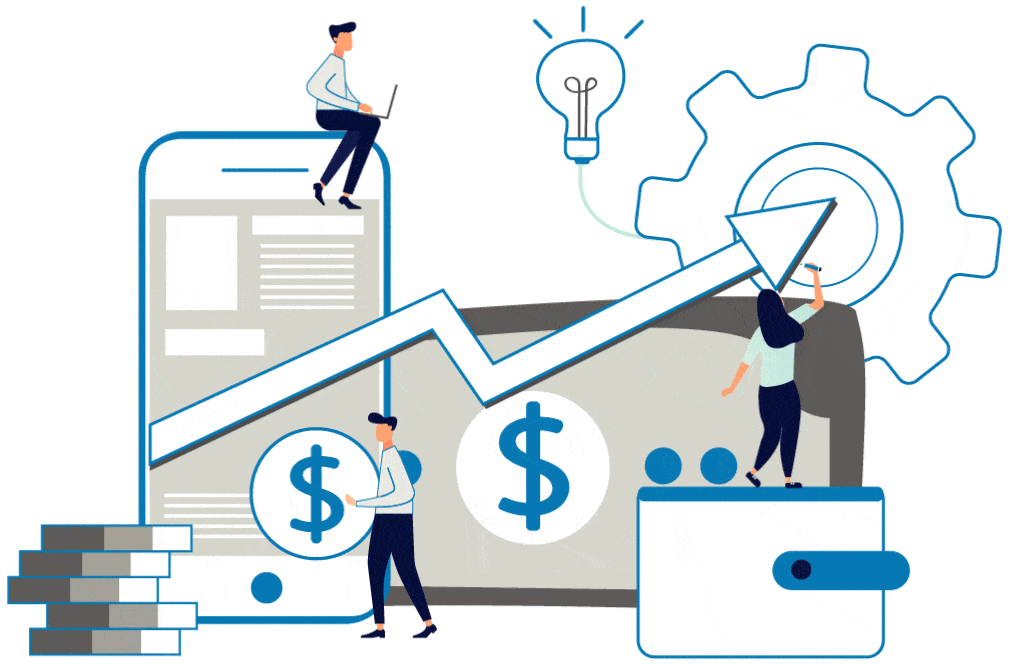Learn to trade Futures Like A Pro
Futures trading can be an exciting and profitable venture, but like all investment avenues, it comes with its complexities and nuances. Our “Learn Futures” page is dedicated to providing newcomers with a foundational understanding of the futures market. Let’s embark on this educational journey together!
1. What are Futures?
A future is a contract to buy or sell a specific asset at a predetermined price on a set date in the future. Unlike stock markets where ownership of assets is transferred, futures markets deal in contracts, not the actual assets themselves.
2. History of Futures
The futures market has ancient origins, with rice futures being traded in Japan centuries ago. Delve into the rich history and understand how futures have evolved to become the dynamic market we see today.
3. Basics of Futures Trading
Contract Specifications: Every futures contract has specifications, such as the size, delivery date, and tick size.
Long vs. Short: “Going long” means buying a futures contract, anticipating a price rise. “Going short” means selling a futures contract, expecting a price drop.
Margins: Futures trading uses a system of margins. Learn about initial margins, maintenance margins, and the implications of margin calls.
4. Benefits and Risks
While futures offer opportunities for diversification, leverage, and hedging, they also come with significant risks. Understand both sides of the coin to make informed decisions.
5. Strategies in Futures Trading
Discover various strategies traders employ in the futures market, from basic to advanced:
- Hedging: Protecting against adverse price movements.
- Speculating: Aiming to profit from price movements.
- Spread Trading: Trading the price difference between two or more futures contracts.
6. Choosing a Futures Broker
Just as with stocks, you need a broker to trade futures. Learn about the factors to consider when choosing one, such as fees, platform features, and customer support.
7. Analyzing the Futures Market
Fundamental Analysis: Evaluating factors like supply and demand, geopolitical events, and economic indicators.
Technical Analysis: Studying price charts, patterns, and indicators to predict future price movements.
8. Common Pitfalls and How to Avoid Them
Every trader makes mistakes, but understanding common pitfalls can help you avoid costly errors. Learn about over-leveraging, neglecting research, and other common mistakes.
Join our weekly newsletter and enjoy a recap of the week, the most important stories that moved the markets and how our proprietary chart indicators performed. Follow along and watch our success.
Futures Trading Glossary
A comprehensive list of terms and jargon related to the futures market. From “contango” to “backwardation”, get familiar with the language of futures trading.
Futures trading can be a rewarding endeavor, but it requires dedication, continuous learning, and risk management. We hope this guide serves as a stepping stone to your futures trading journey. Remember, always stay informed and consider seeking advice from financial professionals.
1. Ask (or Offer): The price at which a seller is willing to sell a futures contract.
2. Backwardation: A market condition where futures prices are lower in the distant delivery months than in the nearer delivery months.
3. Bid: The price at which a buyer is willing to purchase a futures contract.
4. Clearing House: An agency or organization that settles trades and ensures the integrity of trades in the futures market.
5. Contract Size: The amount of the underlying asset covered by the futures contract.
6. Contract Month: The month in which a futures contract may be fulfilled by making or taking delivery.
7. Contango: A market condition where futures prices are higher in the distant delivery months than in the nearer delivery months.
8. Delivery: The act of transferring the underlying commodity from the seller of the futures contract to the buyer.
9. Expiration Date: The last day a futures contract can be traded, after which it expires.
10. Hedge: An investment strategy used to reduce risk by taking an offsetting position in a related security, such as a futures contract.
11. Initial Margin: The amount of money deposited by both buyer and seller of a futures contract to ensure performance of the trade.
12. Leverage: The ability to control a large position with a relatively small amount of capital.
13. Limit Up/Limit Down: The maximum price advance or decline allowed for a futures contract in one trading session compared to the previous session’s settlement price.
14. Long: A position in which the trader has bought a futures contract.
15. Maintenance Margin: The minimum amount a futures trader must maintain in their margin account after a purchase or sale.
16. Mark-to-Market: The daily adjustment of margin accounts to reflect the day’s gains or losses.
17. Open Interest: The total number of futures contracts of a given commodity that have not yet been closed out or fulfilled by delivery.
18. Short: A position in which the trader has sold a futures contract.
19. Settlement Price: The daily price at which the clearing house settles all trades.
20. Spot Price: The current market price of the underlying commodity that can be bought or sold for immediate delivery.
21. Tick: The smallest allowable increment of price movement for a contract.
22. Time Decay: The decline in the value of an option as the expiration date approaches, assuming all other factors remain constant.
23. Trading Floor (Pit): The area of an exchange where trading activities occur. With advancements in technology, many trades now occur electronically.
24. Variation Margin: Additional funds a broker will request to replenish the initial margin to the required level when the margin account balance falls below the maintenance margin.


Why Futures Forcast Pro
With our years of trading experience in the futures market, we have developed our own proprietary chart indicators that have nearly a 70% accuracy rate
